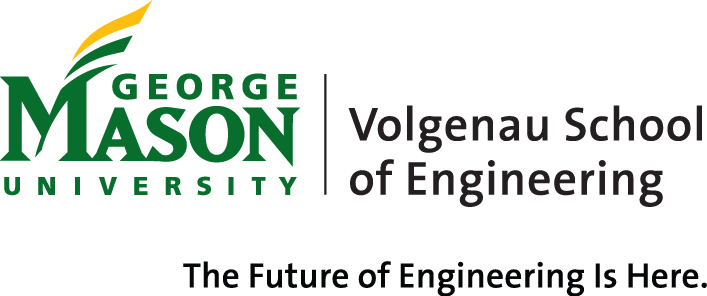| MODERATOR |
| |
|
 |
Lauren Quattrochi, , MA, MA, PhD
NIH Senior Neuroscience Informaticist
Clinical Quality Informatics
Dr. Lauren Quattrochi is a Senior Neuroscience Informaticist at MITRE, who seeks to empower the scientific community through accelerating biomedical research funding opportunities. Dr. Quattrochi has a diverse background ranging from experiences in the pharmaceutical industry, non-profits and government-funded entities - which she integrates to identify systemic research gaps and challenges. She obtained her doctorate from Brown University, where she discovered a novel type of ganglion photoreceptor - the M6 cell. Prior to MITRE, Dr. Quattrochi directed a national initiative to align the interests of the public with the medical community in clinical trial publication bias and design, as well as facilitating evidence-based advancements at Sense About Science USA.
|
| PANELISTS |
| |
|
 |
Keylie Gibson
Ph.D. Student
George Washington University
I attended the University of Central Oklahoma for my undergraduate degree where I earned a B.S. in Forensic Science – Molecular Biology and a B.S. in Biology with a minor in chemistry. I am currently a first year in the Ph.D. program in Biological Sciences at George Washington University and am advised in the Computation Biology Institute. I am broadly interested in population genetics, bioinformatics, and molecular biology and evolution related to infectious diseases, forensic science, and Monarch butterflies. I am also interested in biological anthropology and applying computational biology approaches to the social sciences. Outside of science, I enjoy baking and being outdoors, and I am an avid movie goer.
|
 |
V. Keith Hughitt
Post-doctoral Fellow
Laboratory of Cancer Biology and Genetics (LCBG), NIH/NCI
Dr. Keith Hughitt is a Cancer Research Training Award (CRTA) research fellow working in the lab of Dr. Bevery Mock at NIH/NCI. His current research efforts are focused on the development of novel approaches for the integrative analysis of large-scale drug screen and molecular profiling datasets, in order to detect biomarkers related to patient response to drug treatment. Other interests include open and reproducible research methods and efficient software engineering approaches for the sciences. Prior to graduate studies at UMD, Keith spent close to five years working on visualization and data analysis problems in the solar physics division at NASA Goddard Space Flight Center in Greenbelt, MD.
|
 |
Eldred A. Ribeiro, Ph. D
Healthcare Systems, Principal
MITRE
Dr. Eldred Ribeiro is interested in solving complex problems in Healthcare and Clinical Research by leveraging interdisciplinary scientific knowledge and information technology. Prior to joining MITRE, he served as the data manager on the Biomedical Translational Research Information System (BTRIS), utilized by the National Institutes of Health to aggregate patient information used in Clinical Trials.
While serving for nearly a decade as an R&D scientist at Bio-Rad Laboratories (California), Eldred was instrumental in the design of many recognition and signal processing algorithms, biotechnology applications and instruments for use in Genomics and Proteomics research. His interest in bioinformatics and biotechnology instrumentation was fueled during his post-doctoral work at Brookhaven National Laboratory (New York) where he developed computer analysis for DNA electrophoresis patterns used in sequencing and mapping during the Human Genome Project. During the seminal years of the use of DNA Profiling to establish identity for forensic purposes, Eldred served as an expert scientific witness in the California court system.
Eldred has a Doctorate in Physics from Clemson University, where he developed biophysical techniques for quantifying UV-induced damage to DNA using gel electrophoresis. He is a National Science Talent Scholar, with a Masters in Physics from the Indian Institute of Technology.
Eldred advocates instilling STEM interest in youth by conducting seminars in biomedical topics for high school students and by serving as a judge in science fairs at the regional, state, and international levels.
|
 |
Dr. Amarda Shehu
Professor
Department of Computer Science
George Mason University
Fairfax, VA
Dr. Amarda Shehu is an Associate Professor in the Department of Computer Science at George Mason University. She holds affiliated appointments in the School of Systems Biology and the Department of Bioengineering at George Mason University. She received her B.S. in Computer Science and Mathematics from Clarkson University in Potsdam, NY in 2002 and her Ph.D. in Computer Science from Rice University in Houston, TX in 2008, where she was an NIH fellow of the Nanobiology Training Program of the Gulf Coast Consortia. Shehu's research contributions are in computational structural biology, biophysics, and bioinformatics with a focus on issues concerning the relationship between sequence, structure, dynamics, and function in biological molecules. Her research on probabilistic search and optimization algorithms for protein structure modeling is supported by various NSF programs, including Intelligent Information Systems, Computing Core Foundations, and Software Infrastructure. Shehu is also the recipient of an NSF CAREER award and two Jeffress Memorial Trust Awards.
|
 |
Nick Weber
Lead, Translational Bioinformatics Program
NIAID OCICB Bioinformatics and Computational Biosciences Branch (BCBB)
Rockville, MD
Since 2009, Nick Weber has served as an intern, analyst, project manager, product owner, and program lead at the National Institutes of Health. He has a passion for leading “learning teams” that strive to deliver novel, useful, and sustainable applications and databases for the global scientific research community. Nick applies his interdisciplinary education in science, technology, and management to innovative projects that include Nephele, a platform for enabling scalable and standardized microbiome data analysis using the Amazon cloud, and the NIH 3D Print Exchange, a toolkit and repository for creating and sharing 3D-printable models for biomedicine.
|
| |
|













